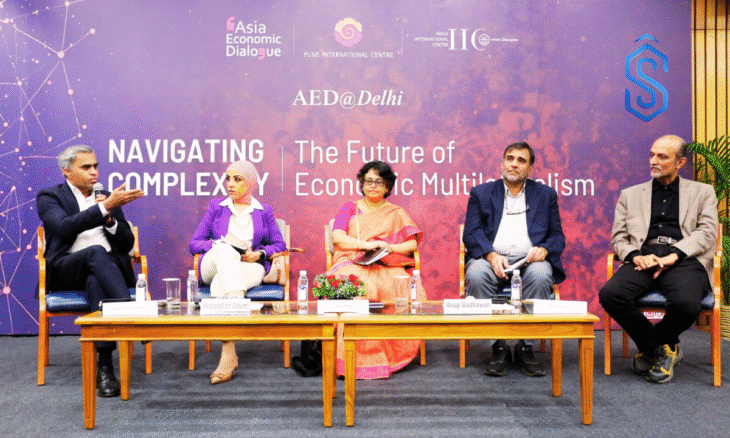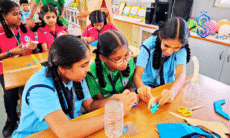New Delhi: The Pune International Centre (PIC), in partnership with the India International Centre (IIC), hosted the Asia Economic Dialogue Delhi (AED Delhi), spotlighting economic multilateralism as a cornerstone for global stability and inclusive growth.
Themed “Navigating Complexity: The Future of Economic Multilateralism,” the conference brought together senior diplomats, policymakers, economists, business leaders, and academics to discuss the evolving global trade order, supply chain disruptions, and the role of the Global South.
Economic multilateralism essential for global stability
- Amb (Retd) Shyam Saran, President of IIC, underlined that economic multilateralism remains indispensable for maintaining global stability.
- Amb (Retd) Gautam Bambawale, Convenor of AED and Trustee of PIC, highlighted the urgent need for pragmatic and inclusive multilateral engagement amid shifting supply chains and rising protectionism.
Keynote speaker Sudhakar Dalela, Secretary (Economic Relations), Ministry of External Affairs, stressed the importance of resilient multilateral institutions that amplify the voice of the Global South, while also addressing challenges linked to AI governance, climate finance, and economic transition.
Also Read: NCSI 2025: PIC Opens Applications for 13th National Conference on Social Innovation
Economic Multilateralism: Tariffs, supply chains, and India’s positioning
A panel chaired by Dr Ajit Ranade examined the impact of trade protectionism and US tariffs on global supply chains. He warned that India’s absence from regional frameworks risks excluding it from emerging supply chains.
South Africa’s Deputy High Commissioner Cedrick Crowley called for Africa-Asia cooperation to promote fairer trade and industrialisation, while Amb. (Retd.) J.S. Deepak noted that rising tariffs and weakening WTO norms present a stark choice for India—resist unfair trade pressure or risk marginalisation.
PSUs and competitiveness in multilateral frameworks
Atul Sobti, Director General of SCOPE, highlighted the pivotal role of India’s Public Sector Undertakings (PSUs) in sustaining economic resilience, with 78% of PSUs contributing significantly to GDP.
Former Commerce Secretary Dr Anup Wadhawan argued that India must engage more deeply with China to strengthen competitiveness, while Prof. (Dr.) Hebatallah Adam advocated for expanded intra-south trade partnerships.
Dr. Saon Ray observed that India’s reform-oriented policies and demographic advantage position it well to scale up participation in global supply chains.
Also Read: Pune to Become Hub for Defence Land Systems Innovation Under Indian Army-MCCIA MoU
India-China dynamics and reform imperative
Dr C Rajamohan emphasised the growing asymmetry between India and China, warning that without internal reforms India’s ability to maintain strategic balance would diminish.
B V R Subrahmanyam, CEO of NITI Aayog, in his valedictory remarks, underscored that openness, integration with global markets, and investment in innovation remain key for ensuring India’s rise amid global uncertainties.
The day-long dialogue concluded with closing remarks by Maj. Gen. (Retd.) Nitin Gadkari, Director of PIC.










